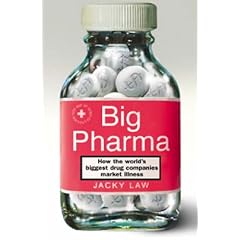 With the endless news cycle surrounding health care reform lately, it’s easy to have missed some other breaking and troubling news. In the past two weeks, we have Pfizer paying $2.3 Billion in reparations for faulty marketing; we have a smoking gun with CME being used as blatant drug advertising by Forest labs (the makers of “Lexapro”, the wonder drug)- you can actually read the words themselves in a lovely pdf, I love Part IV. Promotional Objectives:
With the endless news cycle surrounding health care reform lately, it’s easy to have missed some other breaking and troubling news. In the past two weeks, we have Pfizer paying $2.3 Billion in reparations for faulty marketing; we have a smoking gun with CME being used as blatant drug advertising by Forest labs (the makers of “Lexapro”, the wonder drug)- you can actually read the words themselves in a lovely pdf, I love Part IV. Promotional Objectives:
Maintain SRI category leadership in total number of medical education events
(including CME symposia, speaker programs, teleconferences, and peer selling
programs)
and now we have the invisible hand that pulls all the triggers: Ghost writing in Medical Journals. Unfortunately this last piece of research has not been peer-reviewed or published yet, but prior work by the same authors has shown worrisome rates of ghost authorship previously.
When I think about the drugs I use for my patients, the journals and lectures I rely on for my ongoing education, I am becoming more and more troubled. If the drug companies fund the studies, write the papers, market the drugs, provide my education surrounding them, and fund the guidelines I use to guide my decisions, how can I avoid giving my patients drugs that do them harm?
This is why we have government, when markets fail to self-regulate, when they are too opaque for any one human to suss out the truth, this is where the government should step in. And yet, even here we see failure. I remember learning about the Clinical Trials registry in an ethics class, as a way that drug companies could be kept honest. They register their studies, their outcomes, their plan, and we can see if they keep their word. And it sounds like a great idea. At least this way, someone would know who’s doing what research out there, but what do we find? Drug companies don’t use it. Why should they? A new study last week in JAMArevealed that drug companies don’t register their studies half the time; that even when they do, they report only selective outcomes, not necessarily the ones they indicated in the database. We all know the equation: sponsorship + research = positive outcome, but why can’t the Journals, the physicians, the public, someone, anyone, do something about it?
I like clinical research, I find it rewarding to have a clinical question and find an answer for it, with the hope that it may help some other physician or patient out there. With the comparative dearth of clinical research in older adults and palliative care being such a new relatively new field, I worry that the drug company influence in our lives may be even greater because there is less alternate competition. I don’t want to hurt my patients and when someone wants to hammer down my patient’s HgbA1c below 7, I cringe. Isn’t chasing the HgbA1C just another drug company ploy for my 80 year old patient? But how can anyone keep a clear head when we’re flooded with information that these are good things to do, that I’m a bad doc if I don’t. I honestly have no solutions to this problem, only a nagging concern that fills me with worry and dread and keeps me up at night. Maybe I need some Lexapro?
-Chrissy Kistler
*This blog-post was sponsored and ghost-written and edited for content and posted by Geripal.



